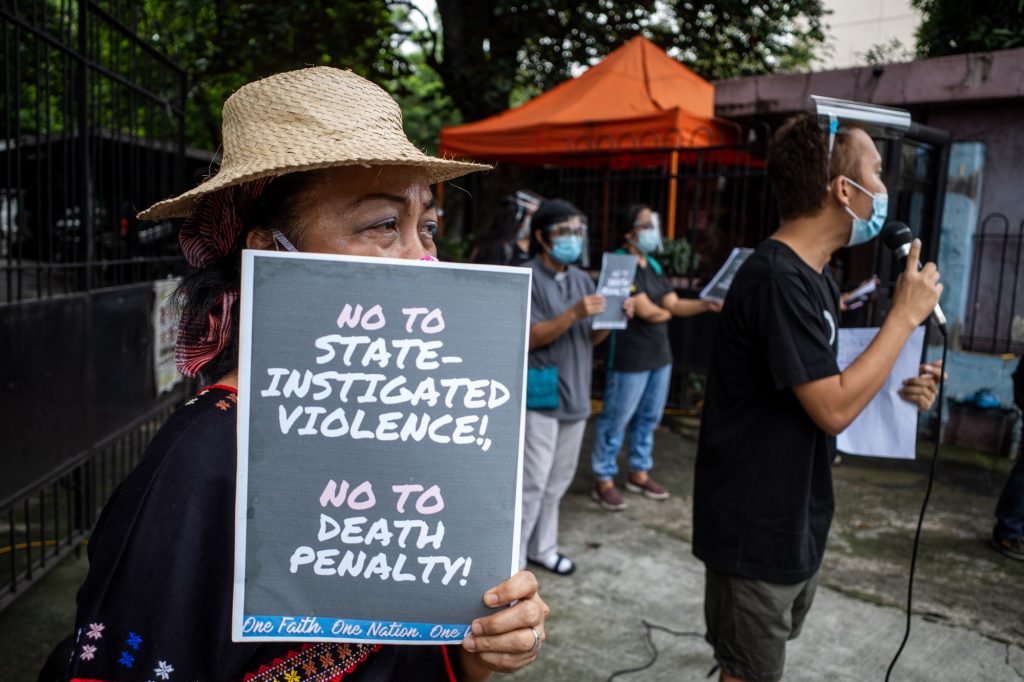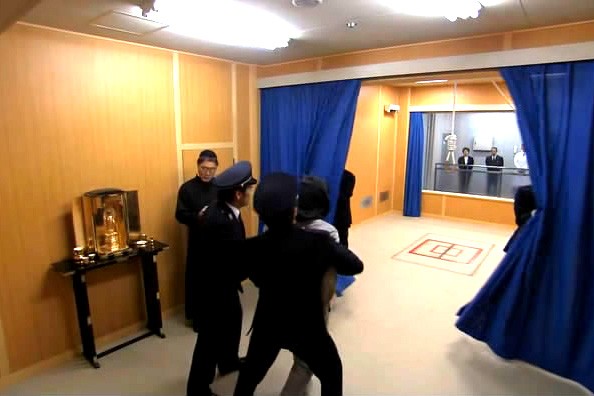Japan hanged three prisoners on Tuesday, its first executions in two years, with the government saying it was necessary to maintain capital punishment in the face of continued “atrocious crimes.”
Japan is one of the few developed countries to keep the death penalty and public support for capital punishment remains high despite international criticism, especially from rights groups.
More than 100 people are currently on death row, most of them for cases of mass murder. Executions are carried out by hanging, usually long after sentencing.
One of the three executed on Tuesday was Yasutaka Fujishiro, 65, who used a hammer and knife to kill his 80-year-old aunt, two cousins and four others in 2004, a justice ministry spokeswoman told AFP.
The other two were 54-year-old Tomoaki Takanezawa, who killed two clerks at an arcade game parlor in 2003, and his accomplice Mitsunori Onogawa, 44.
The executions were the first under Prime Minister Fumio Kishida, who took office in October.
“Whether to keep the death sentence or not is an important issue that concerns the foundation of Japan’s criminal justice system,” deputy chief cabinet secretary Seiji Kihara said.
“Given that atrocious crimes keep occurring one after another, it is necessary to execute those whose guilt is extremely grave, so it is inappropriate to abolish capital punishment.”
The country is reeling after a fire gutted a mental health clinic in the city of Osaka on Friday, with the death toll climbing to 25 as another woman succumbed to her injuries.
Investigators have made the unusual move of naming the arson suspect although they have not yet announced a criminal investigation.

53 years on death row
Japan executed three death-row inmates in 2019 and 15 in 2018 — including 13 from the Aum Shinrikyo cult that carried out a fatal 1995 sarin gas attack on the Tokyo subway.
For decades, authorities have told death row inmates just hours before an execution is carried out.
Two prisoners are suing the government over the system, which they argue is illegal and causes psychological distress.
The pair are also seeking compensation of 22 million yen (US$194,000) for the distress caused by living with uncertainty about their execution date.
Documents and news archives show that Japan used to give death row inmates more notice, but stopped around 1975.
In December 2020, Japan’s top court overturned a ruling blocking the retrial of a man described as the world’s longest-serving death row prisoner, raising new hope for the now 85-year-old.
Iwao Hakamada has lived under a death sentence for more than half a century after being convicted in 1968 of robbing and murdering his boss, the man’s wife, and their two teenaged children.
But he and his supporters say he confessed to the crime only after an allegedly brutal police interrogation that included beatings, and that evidence in the case was planted.
Worldwide, at least 483 people were executed last year in 18 countries, according to rights watchdog Amnesty International.
That represents a drop of around a quarter from the year before, and fits a downward trend since 2015.
The figure does not, however, include the “thousands” of executions believed to have been carried out in China, which keeps such data secret, along with North Korea and Vietnam.
Japan and the United States are the only members of the G7 group of developed countries that still use the death penalty.







